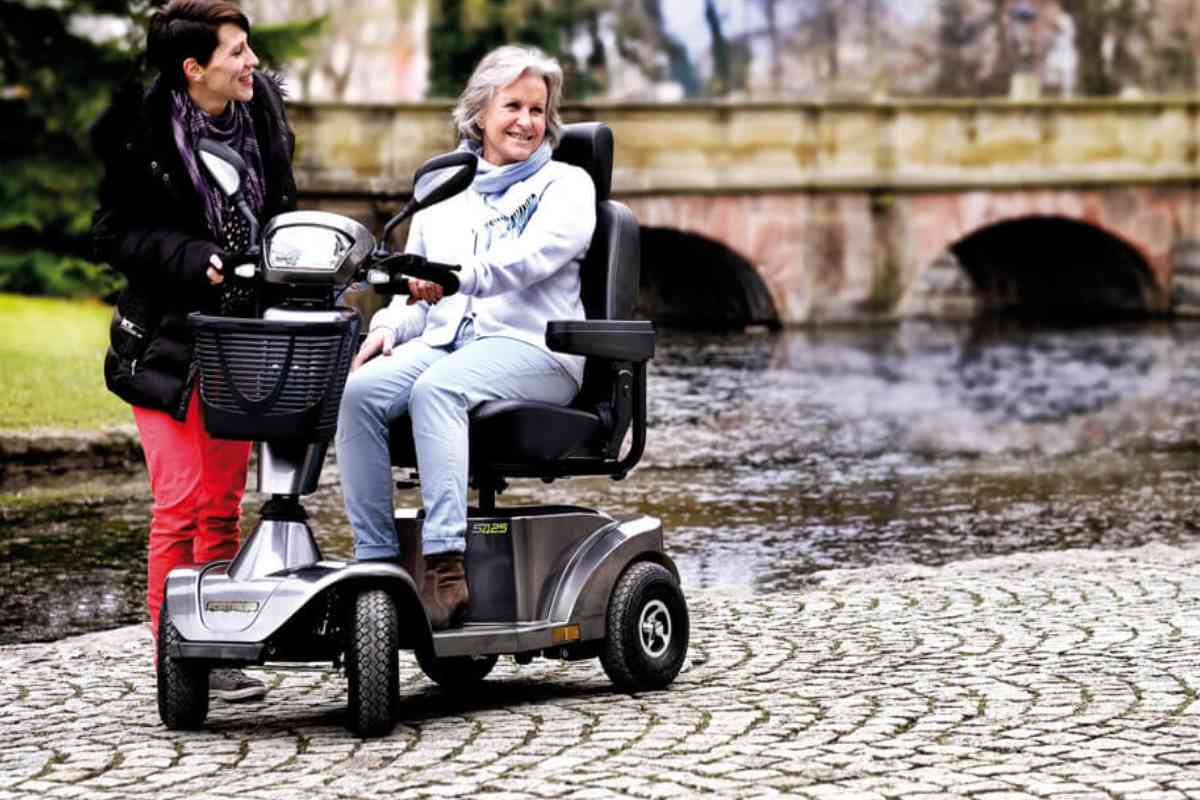As we age, our bodies and minds experience many changes. These changes happen slowly, over several years. Often, our bodies experience physical limitations before our minds. In these instances, older adults often have a hard time accepting the changes happening right in front of them.
Limitations in mobility can make elderly people feel depressed or over-reliant on others for mobility assistance. These feelings of limited independence can manifest, causing other behavioral or physical symptoms to manifest. It is not uncommon for older adults to resist mobility assistance, putting it off for many years.
Several conditions can limit an elderly person’s ability to move well. While their mobility limitations may simply be a result of increased age, they may also be a result of certain medical conditions. Some medical conditions which lead to decreased mobility include Diabetes, Arthritis, Parkinson’s Disease, and more.
Table of Contents
Three Reasons why Older Adults need Mobility Assistance
Stability Issues and Increased Fall-Risk
Although elderly persons may be reluctant, mobility assistance is necessary for people with declining mobility functions. To begin with, older adults who face stability issues are at risk for dangerous falls. They may feel unstable when walking or performing daily activities. As our bodies age, our bones become weaker, losing important density. This loss of bone density can cause balance and stability issues to present.
Social Implications
In addition to an increased risk for falls, older adults experiencing limited mobility may feel like life is passing them by. People experiencing limitations in moving around may shy away from social activities or events, to avoid embarrassment. As a result, they may miss important family gatherings or events.
Aware of their physical limitations, older adults often feel shy or uncomfortable asking other people to help them move. Over time, the implications of limited mobility can take a serious toll on the mental health and life satisfaction of elderly persons. Also, elderly people that are experiencing stability concerns may fear falls. As such, they may choose to stay home frequently, also leading to poor mental health outcomes.
Elderly Tire Easily
Getting old can be exhausting! As we age, our bodies are not as quick and agile as they once were. For the elderly that are struggling to move around, even simple tasks like a short walk can be strenuous. The enhanced strain can cause them to tire easily, as their bodies work hard to compensate. This exhaustion can be defeating.
How Scooters can Enhance Quality of Life
Mobility scooters offer a wonderful solution for the elderly experiencing physical limitations. Using a scooter can greatly improve the quality of life in elderly persons by addressing the three reasons mentioned above. First, owning a mobility scooter gives an elderly person a new outlook on life. A mobility scooter helps regain a feeling of independence, allowing users to ride around without the assistance of other people. This independence plays a critical role in the overall mood, demeanor, and mental well-being of older adults. A simple electric mobility scooter can offer freedom to run errands, take a stroll through the park, or visit family or friends.
Over the past decade, mobility scooter technologies have made significant strides. No matter what your needs require, there is a mobility scooter option that offers safe riding for any type of rider. Mobility scooters are available in three-wheel, four-wheel, and travel-friendly options. In addition, many scooters are made to be simple and easy to use, with the specific needs of the elderly in mind.
Not only does a scooter enhance independence, but it allows the elderly to stay present and active in their lives. No longer will they need to stay home or miss out on important life events like parties or birthdays. In addition, scooters help limit the chance of dangerous falls from instability.
Conclusion
Maintain quality of life as you age with a mobility scooter. Mobility scooters enhance independence and limit falls, leading to happier, healthier older adults.






